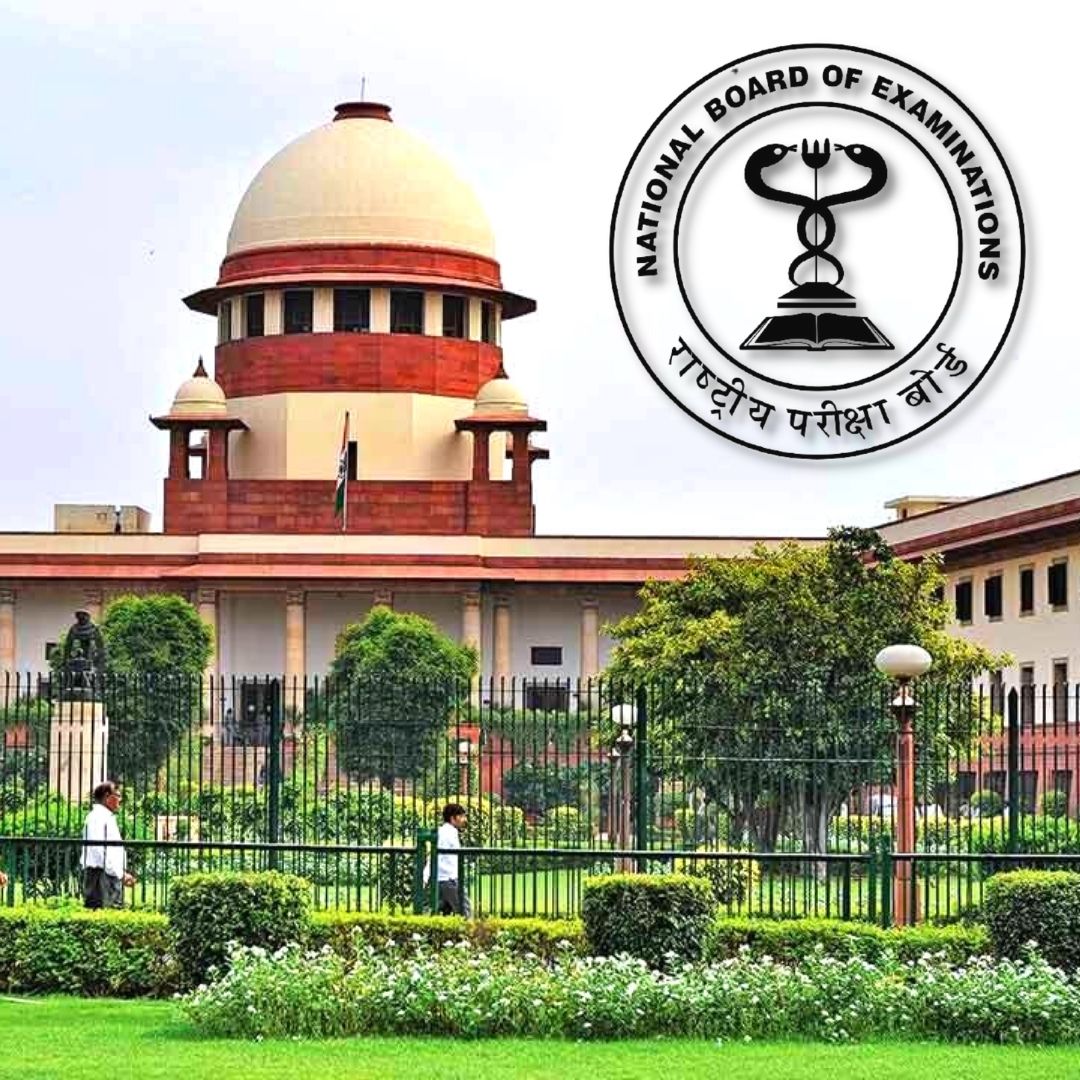
Photo Credit: ANI
NEET-PG: Supreme Court Grants Admissions With 10% For EWS, 27% Quota For OBCs
Writer: Snehadri Sarkar
While he is a massive sports fanatic, his interest also lies in mainstream news and nitpicking trending and less talked about everyday issues.
India, 7 Jan 2022 8:04 AM GMT | Updated 7 Jan 2022 8:05 AM GMT
Editor : Ankita Singh |
A literature lover who likes delving deeper into a wide range of societal issues and expresses her opinions about the same. Keeps looking for best-read recommendations while enjoying her coffee and tea.
Creatives : Snehadri Sarkar
While he is a massive sports fanatic, his interest also lies in mainstream news and nitpicking trending and less talked about everyday issues.
The Supreme Court also allowed 27% reservation for OBCs and 10% for the EWS category in the All-India Quota (AIQ) seats in the 2021-22 NEET-PG examination for admission to medical entrance courses for the year 2022.
In what can only be labelled as a major relief for medicos, the Supreme Court upheld the reservation for Economically Weaker Sections (EWS) and also for Other Backward Castes (OBC) for 2021-22 in the NEET post-graduate admissions case on Friday (January 7).
The Supreme Court also allowed 27% reservation for OBCs and 10% for the EWS category in the All-India Quota (AIQ) seats in the 2021-22 NEET-PG examination for admission to medical entrance courses for the year 2022.
A Landmark Decision From The Supreme Court Bench
A bench of justices AS Bopanna and DY Chandrachud stated that the validity of the EWS criteria will potentially be subject to orders of the court, as reported by NDTV.
Furthermore, the detailed hearing on the validity of the OBC and EWS reservation will be taken up once again in March this year.
The NEET-PG candidates had challenged a July 29, 2021 notification that stated the implementation of the EWS and the OBC quotas from the 2021-22 academic year and had opposed the centre's justification of applying the Rs 8 lakh income criterion, stating that no candidate has been conducted on it.
In December 2021, resident doctors from all over India protested against the delay in the NEET-PG admissions process. The Supreme Court had decided to release a stay on the process after a petition was filed challenging the EWS criteria as 'discriminatory'. The apex court had questioned how the ₹ 8 lakh income limit was determined.
Strike By Resident Doctors
Last week, the resident doctors had decided to call off their strike on the criteria that the NEET-PG counselling dates are released post-January 6 hearing in the SC.
Earlier, the central government had said in an affidavit filed before the Supreme Court that it will be accepting all the recommendations of the 3-member committee, which was formed to evaluate the EWS criteria. According to this, the current annual family income limit of ₹ 8 lakh for the EWS reservations will continue to be effective. Furthermore, the residential asset criterion also will be removed.
Meanwhile, families who own more than five acres of agricultural land are not eligible under the EWS reservation irrespective of annual income. But these recommendations will be applied prospectively and not come into effect in the current admissions cycle.
Also Read: Security Lapse Or Farmers' Anger, Probe Needed: BKU's Rakesh Tikait On PM Modi's Punjab Visit
 All section
All section














